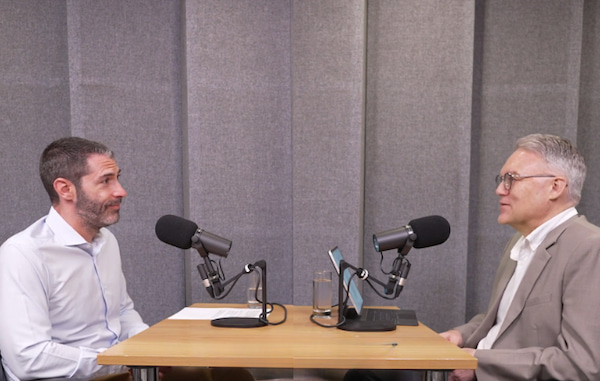 Randy Durband, GSTC CEO, was recently interviewed by Nikos Diamantopoulos, General Manager of Marketing Greece, to share insights on the role of sustainability standards in shaping the future of tourism.
Randy Durband, GSTC CEO, was recently interviewed by Nikos Diamantopoulos, General Manager of Marketing Greece, to share insights on the role of sustainability standards in shaping the future of tourism.
During the conversation, Mr. Durband described how the GSTC Standards are developed through an incredibly inclusive process (previously known as GSTC Criteria), serving as the global standards for sustainability in travel and tourism.
The podcast examined case studies that demonstrated practical approaches to visitor flow management, including the use of reservation systems and the promotion of off-season travel, which can help alleviate pressure on high-traffic sites.
Mr. Durband shared insights from Granada (Spain), Saint-Guilhem-le-Désert in the south of France, and Leshan (China), and emphasized the importance of collaboration and governance, explaining that partnerships between public authorities, the private sector, local councils, and residents play a central role in advancing effective sustainability strategies tailored to each destination’s unique context. He also pointed out how stronger coordination at the national level can support more consistent progress across regions and noted that visitors often adapt more quickly than anticipated to sustainable practices, and encouraged destinations to take this into account when designing long-term strategies.
“Thank you to our GSTC member, Marketing Greece, for the opportunity to join this thoughtful conversation. It was a pleasure to discuss how the GSTC Standards can support both destinations and tourism businesses in navigating today’s challenges and opportunities,” said Mr. Durband.
Using Turkey’s national sustainable tourism program initiative as an example, Mr. Durband described how aligning with GSTC Standards can promote sector-wide improvements. He pointed out the role of GSTC-accredited certification bodies as a reliable mechanism for ensuring transparency and quality in certification.
The conversation also addressed challenges such as overtourism and the importance of managing tourism flows to protect cultural heritage and community well-being. Mr. Durband emphasized the importance of distributing tourism across regions and seasons, as well as the value of adopting flexible tools that enable destinations to respond to changing visitor patterns in a thoughtful manner.
Watch the full podcast of Marketing Greece in English by clicking on the video below:



